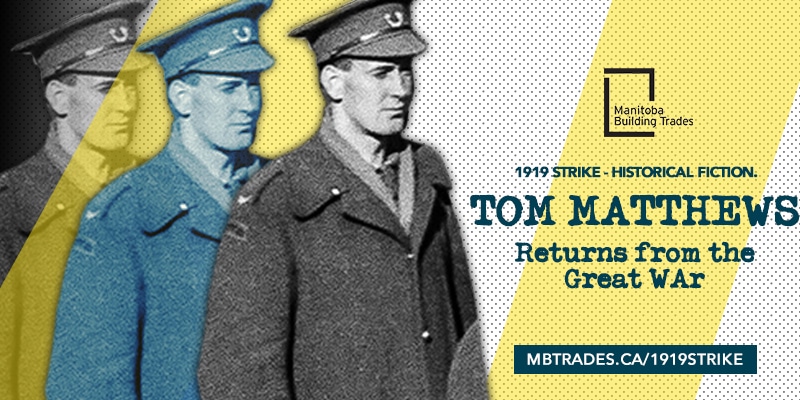

MAY 30TH

May 30
On this day in 1919…
Following the lead of Arthur Moore, the president of the Manitoba Command of the Great War Veterans Committee, 2,000 veterans march toward the grounds of the Manitoba Legislature.
The men demand to speak with Premier T.C. Norris and his cabinet about passing collective bargaining legislation, making it mandatory for every employer in the city and the province. They also demand that the police ultimatum, which forced police officers to renounce their right to strike, be withdrawn. The premier says he will consider their request but makes no promises.
Like the labour workers, the veterans, or “returned men,” also suffered due to the post-war economic conditions. Many returned home with serious wounds, diseases, and shell shock from the carnage they faced overseas, only to find that their wages had decreased and that their positions in the workforce were no longer available to them. As a result, the unemployment rate of veterans rose dramatically.
Some veterans stood against the strike movement, blaming Eastern-Europeans immigrants for stealing their jobs and bringing socialist ideologies with them to Winnipeg. These men sided with the Citizens’ Committee of 1000 and formed the Loyalist Veterans’ Association to uphold British authority.
Other unemployed veterans, who struggled to support themselves with no income, opposed the business community who had taken away the job security of workers during the war. These men stood in solidarity with the labour workers and supported their fight for rights in the workplace.
However, unlike the striking labour workers, who were instructed by the Central Strike Committee and Western Labour News to hold only peaceful rallies in Victoria Park, the veterans wanted immediate action and attention. This caused a division between the strikers and veterans, as the labour workers did not want to be perceived by the press or public as violent.
On May 31, approximately 10,000 veterans and labour workers return to the steps of the Manitoba Legislature, waiting to hear the premier’s reply to their demands.
Despite their attempts, Premier Norris refuses to pass legislation in favour of the strikers. He also instructs the veterans and labour workers to discuss the police ultimatum with city council, telling them this particular decision is out of his control.
The men’s frustration increases and over the next three days, groups of pro-strike veterans participate in public demonstrations by marching in the streets. Tensions continue to rise between the strikers and the Citizens’ Committee of 1000.
Learn More About the Involvement of Veterans in the 1919 Winnipeg General Strike:

